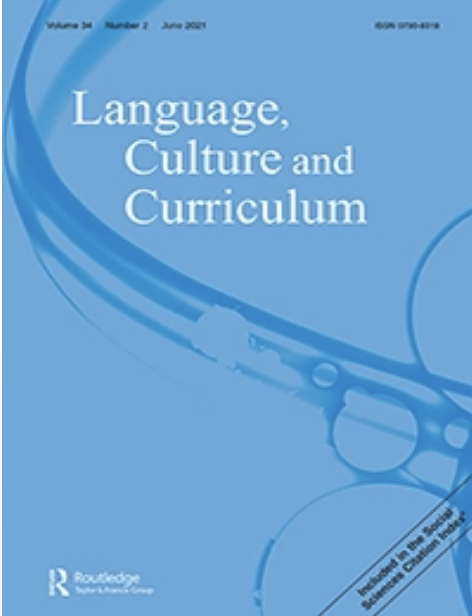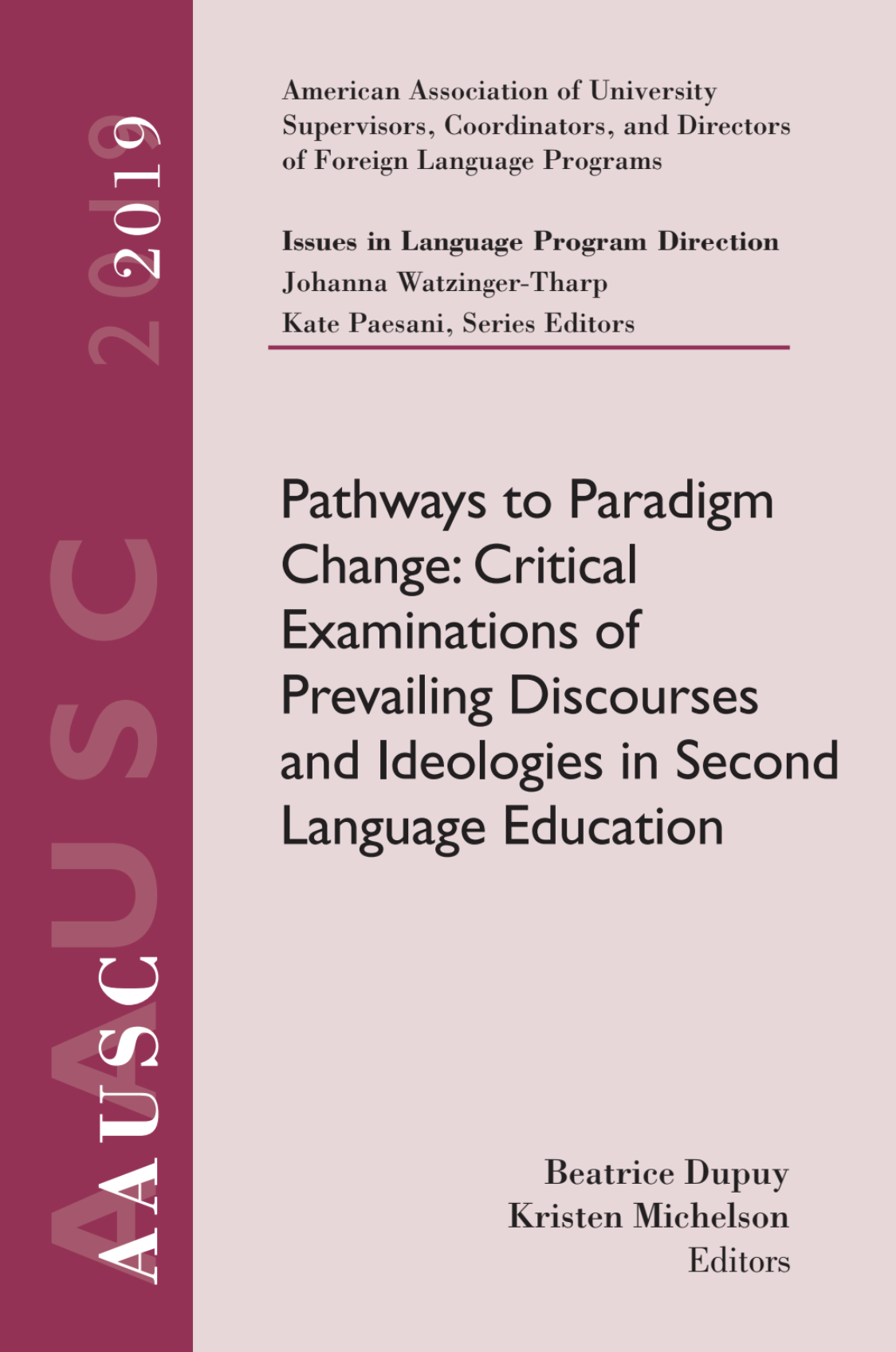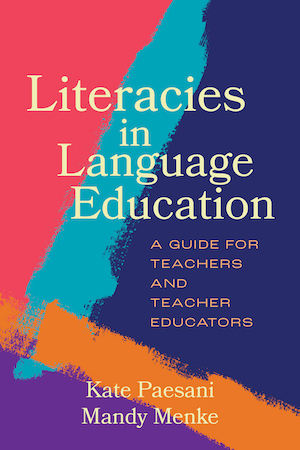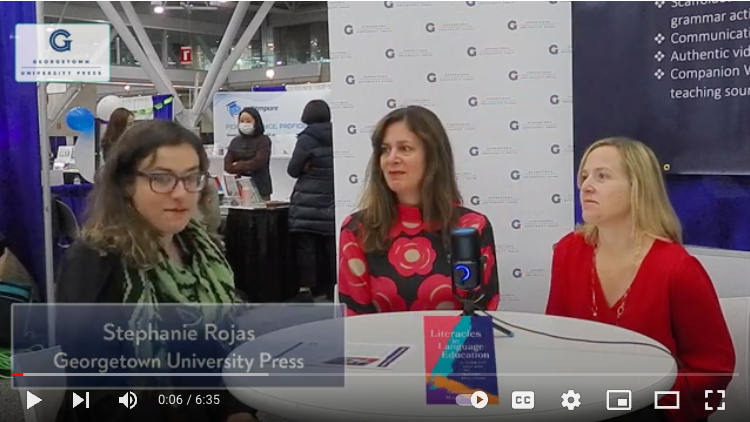Literacies Research
The Literacies in Language Education research project addresses two overarching questions:
- How do teachers understand and implement multiliteracies pedagogy?
- What professional development resources and experiences can support teachers in understanding and implementing multiliteracies pedagogy?
To begin answering these questions, the research team has carried out two studies: one that investigates how the four activities types of multiliteracies pedagogy (experiencing, conceptualizing, analyzing, applying) are reflected in lesson plans that target interpretive communication in beginning and intermediate post-secondary Spanish courses; and a second that studies the ways that teachers talk about multiliteracies pedagogy and whether and how that talk reflects concepts of communicative language teaching.
 Findings from Study 1 revealed that text-based teaching materials targeting interpretive communication overwhelmingly emphasized the knowledge process of experiencing; the knowledge processes of conceptualizing, analyzing, and applying occurred much less frequently in the 154 tasks that were analyzed. These findings underscore teachers’ struggle to create lessons that prioritize all four activities types of multiliteracies pedagogy and suggest the need for targeted professional development that helps them realize the full potential of this instructional approach for developing students foreign language literacies.
Findings from Study 1 revealed that text-based teaching materials targeting interpretive communication overwhelmingly emphasized the knowledge process of experiencing; the knowledge processes of conceptualizing, analyzing, and applying occurred much less frequently in the 154 tasks that were analyzed. These findings underscore teachers’ struggle to create lessons that prioritize all four activities types of multiliteracies pedagogy and suggest the need for targeted professional development that helps them realize the full potential of this instructional approach for developing students foreign language literacies.
Menke, M. R., & Paesani, K. (2019). Analysing foreign language instructional materials through the lens of the multiliteracies framework. Language, Culture, and Curriculum, 32(1), 34-49. https://doi.org/10.1080/07908318.2018.1461898.
 Study 2 focused on three teachers implementing multiliteracies pedagogy and their discourse related to this approach. Findings showed that, to varying degrees, teachers’ discourse around multiliteracies pedagogy reflected conventionalized beliefs and practices related to communicative language teaching. The degree to which these beliefs and practices manifested themselves in teacher discourse was connected to participants’ personal and formal learning experiences with both multiliteracies pedagogy and communicative language teaching. Once again, the study’s findings highlight the need for coherent and sustained professional development and the importance of bringing teachers’ beliefs and experiences to light when the learn about new teaching paradigms.
Study 2 focused on three teachers implementing multiliteracies pedagogy and their discourse related to this approach. Findings showed that, to varying degrees, teachers’ discourse around multiliteracies pedagogy reflected conventionalized beliefs and practices related to communicative language teaching. The degree to which these beliefs and practices manifested themselves in teacher discourse was connected to participants’ personal and formal learning experiences with both multiliteracies pedagogy and communicative language teaching. Once again, the study’s findings highlight the need for coherent and sustained professional development and the importance of bringing teachers’ beliefs and experiences to light when the learn about new teaching paradigms.
Menke, M. R., & Paesani, K. (2021). Understanding teacher discourse around multiliteracies pedagogy. In B. Dupuy & K. Michelson (Eds.), Pathways to paradigm change: Critical examinations of prevailing discourses and ideologies in second language education (pp. 83-107). Cengage.
 Implications from these studies’ findings were used to inform a book-length project aimed at practitioners. Literacies in Language Education: A Guide for Teachers and Teacher Educators defines multiliteracies pedagogy, its benefits, and how to create curricula and instructional materials grounded in it. The book also explains, in teacher-friendly language, how to use this approach at all levels of language education and offers ideas for teacher professional development. The book’s companion website includes links to free resources mentioned in each chapter.
Implications from these studies’ findings were used to inform a book-length project aimed at practitioners. Literacies in Language Education: A Guide for Teachers and Teacher Educators defines multiliteracies pedagogy, its benefits, and how to create curricula and instructional materials grounded in it. The book also explains, in teacher-friendly language, how to use this approach at all levels of language education and offers ideas for teacher professional development. The book’s companion website includes links to free resources mentioned in each chapter.
 Watch the video to hear the authors talk about some of the book's features.
Watch the video to hear the authors talk about some of the book's features.
Paesani, K, & Menke, M. (2023). Literacies in Language Education: A Guide for Teachers and Teacher Educators. Georgetown University Press.
To learn more about research from the Literacies in Language Education initiative, check out these CARLA presentations from the initiative team:
Paesani, K. (2020, April 16). "Moving to Multiliteracies: Tools to Support Teacher Understanding."
Recent scholarship foregrounds multiliteracies pedagogy as a viable approach for developing students' foreign language literacies, yet few tools exist to assist teachers in implementing this approach. Following a brief overview of multiliteracies pedagogy, we present two tools for teachers that were developed in response to research findings from CARLA 's Foreign Language Literacies project: an infographic featuring multiliteracies and other meaning-based approaches and a lesson analysis checklist. Both tools bring together research and practice by helping teachers explain multiliteracies concepts, distinguish multiliteracies from other approaches, and scaffold multiliteracies lesson plans.
Presenter:
Kate Paesani is Director of the Center for Advanced Research on Language Acquisition (CARLA) and affiliate Associate Professor in the College of Liberal Arts at the University of Minnesota. Her research focuses on literacies-oriented curriculum and instruction and language teacher development, couched within the frameworks of multiliteracies pedagogy and sociocultural theory.
Paesani, K., Menke, M., & Truman, L. (2018, November 1). "Understanding Teacher Discourse Around Multiliteracies Pedagogy."
Over the past two decades, scholars and practitioners have been exploring ways to apply multiliteracies (ML) principles and practices to postsecondary language programs. Yet adopting new teaching paradigms can be challenging for teachers: The few studies that have investigated how teachers learn about and implement ML pedagogy underscore the long-term nature of teachers' conceptual development and their difficulties in applying conceptual knowledge in instruction. In this presentation, we discuss a qualitative case study that contributes to this line of research. Specifically, we investigate whether and how concepts related to communicative language teaching (CLT) (e.g., comprehensible input, language functions, affect) are manifested in teacher discourse around ML pedagogy. Findings indicate that participants' discourse reflected CLT concepts to differing degrees, despite similarities in their teaching histories. We conclude with implications of the study's findings for socializing FL teachers into ML pedagogy.
Presenters:
Kate Paesani is the CARLA Director and affiliate Associate Professor at the University of Minnesota. Her research is focused on literacy-based curriculum and instruction and foreign language teacher development.
Mandy Menke is an Assistant Professor of Hispanic Linguistics and Director of Language Programs in the Department of Spanish and Portuguese Studies. She researches topics related to second language acquisition and foreign language pedagogy, at both the university and K-12 levels.
Lauren Truman is a doctoral candidate of Hispanic Linguistics. Her research interests include bilingualism, language and identity, language maintenance, and language policy. Her work focuses on the sociolinguistics of Spanish and Maya in the Yucatan and bilingual education policy in the United States.
This presentation is cosponsored by the Department of Spanish and Portuguese Studies.
Paesani, K. & Menke, M. (2018, January 23). "Making Multiliteracies Real: A Tool for Analyzing Instructional Materials."
Recent scholarship has foregrounded literacies, defined as a socially situated process of making meaning from texts, as a necessary curricular goal for collegiate foreign language (FL) programs, and multiliteracies pedagogy as a viable approach to develop students' FL literacies. Yet as more programs adopt this framework, additional research is needed to understand how it is applied through materials design and implementation. In response, this study documents the process of implementing a tool for analyzing literacies-based teaching materials. Using the knowledge processes framework (Kalantzis, Cope, Chan, & Dalley-Trim, 2016) as an analytical lens, the researchers and a group of experienced teachers examined 25 lessons targeting interpretive communication from two courses in a lower-level Spanish curriculum. In this presentation, we report empirical data illustrating the results of our analysis as well as teachers' perceptions of the process. We furthermore discuss conceptual and pedagogical factors contributing to our findings and implications for supporting FL teachers in the creation and revision of literacies-based instructional materials.
Presenters:
Kate Paesani is the CARLA Director and affiliate Associate Professor at the University of Minnesota. Her research is focused on literacy-based curriculum and instruction and foreign language teacher development.
Mandy Menke is an Assistant Professor of Hispanic Linguistics and Director of Language Programs in the Department of Spanish and Portuguese Studies. She researches topics related to second language acquisition and foreign language pedagogy, at both the university and K-12 levels.
This presentation is cosponsored by the Department of Spanish & Portuguese Studies
Paesani, K. (2016, September 28). "Interpersonal Speaking as a Pathway to Foreign Language Literacy Development."
In recent years, the concept of literacy has emerged as a common goal for collegiate foreign language curricula. Whereas traditional definitions of literacy focus on students' ability to read and write, modern definitions entail the ability to interpret and create meaning in a range of sociocultural contexts through interaction with authentic target language texts of various genres. This broader definition suggests that literacy development encompasses all language modalities—reading, writing, listening, viewing, and speaking—and that these modalities overlap as learners interact with literary-cultural content to communicate meaningfully. In this presentation, I expand this definition and use illustrative examples to help argue that interpersonal speaking is a viable pathway to foreign language literacy development and increased engagement with literary-cultural content at all levels of the undergraduate foreign language curriculum.
Presenter: Kate Paesani is the new Director of CARLA. Her research focused on literacy-based curriculum and instruction and foreign language teacher development. Before coming to CARLA she was an associate professor and director of basic French courses at Wayne State University.
Cosponsored by the CLA Language Center and the Second Language Education Program in the Department of Curriculum and Instruction.
